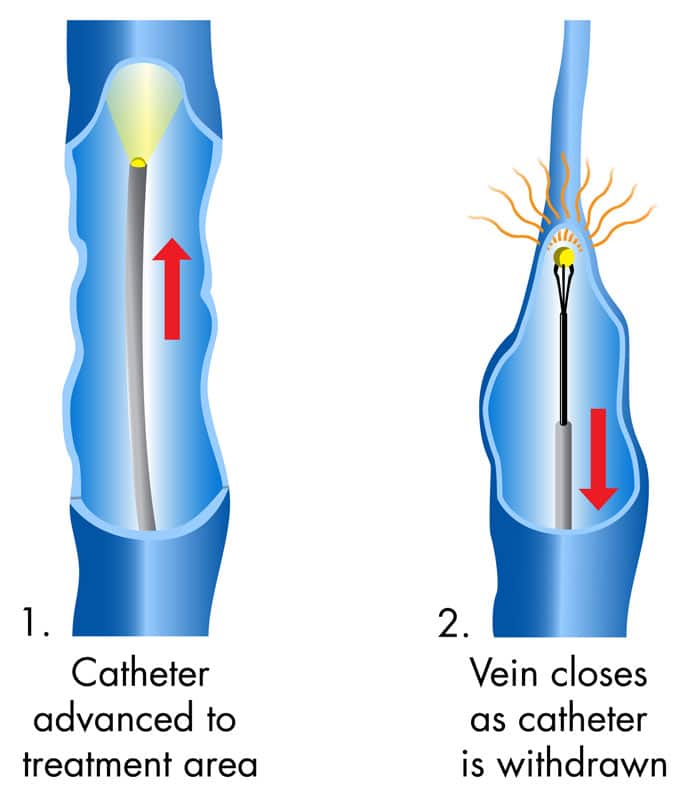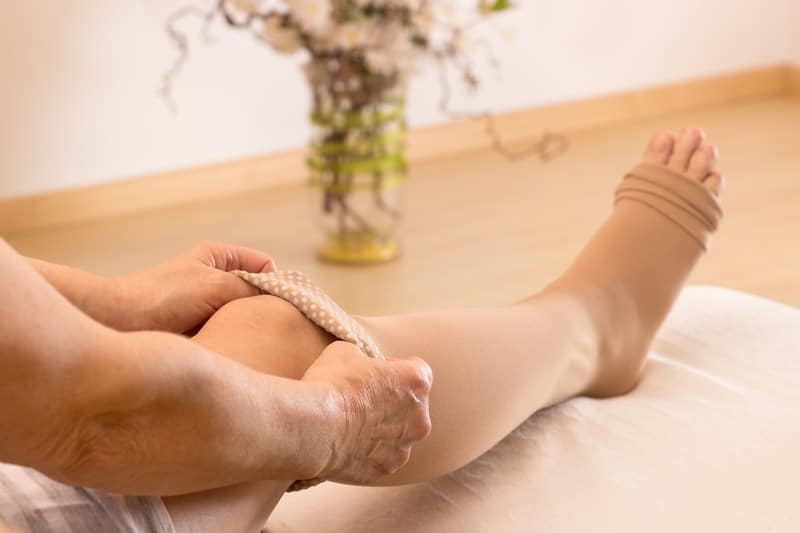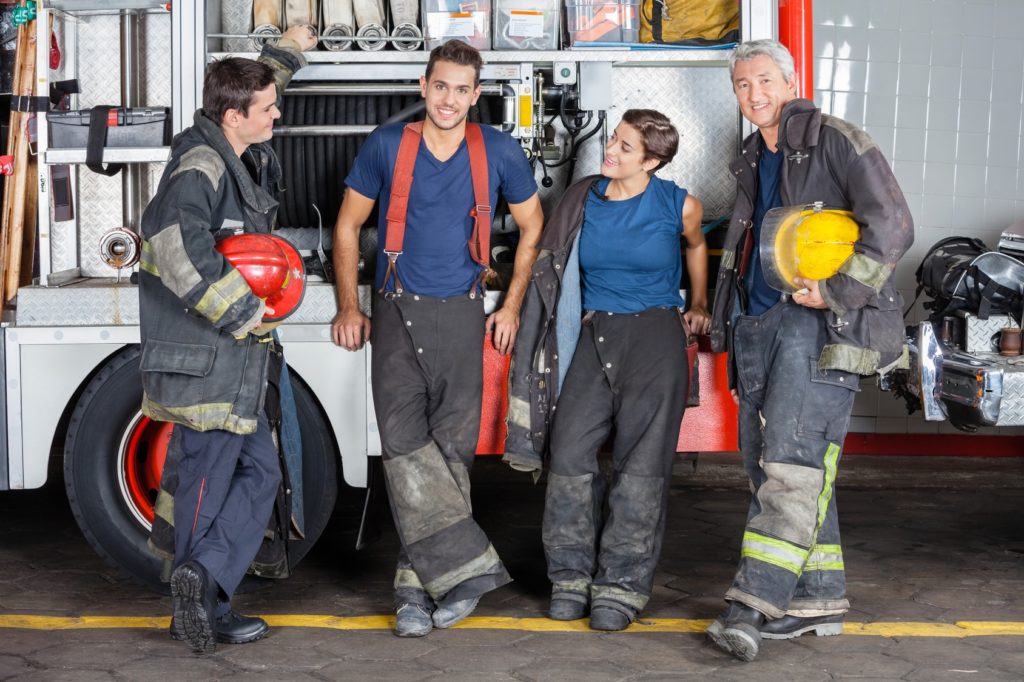What is endovenous ablation?

Endovenous Ablation Definition
Taken literally, endovenous ablation is the removal of a vein from within. ‘Endo’ means internal or inside, ‘venous’ refers to a vein, and ablation is to ‘remove’.
In the instance of veins, it is no longer necessary to physically remove a vein from the leg (vein stripping) to improve symptoms or the condition of chronic venous insufficiency. Technology exists in which the vein can be treated or ablated utilizing different forms of ablation.
Endovenous Vein Ablation Techniques
The three endovenous techniques which are currently used are; chemical closure (sclerotherapy), thermal closure (endovenous radiofrequency ablation or endovenous laser vein ablation), and the newest method is adhesive closure VenaSeal, a non tumescent non thermal vein closure. All three techniques close the veins off by accessing them with needle puncture and damaging the vein from the inside. By inflicting damage to the inside of the vein with either sclerosant, heat energy or adhesive, the veins are permanently closed and over time the body breaks this tissue down and carries it away.
The most common technique associated with the term endovenous ablation is the thermal technique. While inside the vein with either radiofrequency or laser energy, the vein is closed utilizing the thermal or heat energy delivered by the device. This technique requires an initial venous consultation and duplex ultrasound. It is also the technique recognized by most insurance companies and is indicated for treatment of symptomatic venous insufficiency in patients who have failed conservative therapy such as compression stocking use.
Next Steps?
If you are interested in obtaining more information about venous disease and symptoms which are causing you or a loved one concern, please consult a board certified Vein Specialist for a full exam and Duplex Ultrasound. Together with a medical professional you can discuss the most effective treatment for your specific situation.
Varicose Veins worse in Summer Heat? If it seems like your varicose veins symptoms seem to worsen in the summer heat—especially for those of you who live in hot climates like Arizona—you are not imagining it. Talk to a qualified vein specialist and they will tell you that heat does have an effect on your…
Read MoreLet’s face it—a big part of the reason that you are in Arizona is because you don’t enjoy golfing in the snow or hiking in the rain. And now that you are here, there is no reason to let anything get in the way of your active life—not even the discomfort of varicose veins. Although…
Read MoreYounger adults in the U.S. are searching for options to deal with varicose veins…REALLY? Health and Google statistics are starting to show that younger and younger people are seeking treatment for conditions such as varicose veins, chronic venous insufficiency (CVI), and other health conditions usually associated with older adults. Health officials are attributing this…
Read MoreHas a woman ever said she loves wearing high heels because they are just so comfortable? Uh uh. Or because it is just so easy to walk in them? Not likely. High heels are popular because of the way they make the legs of the wearer appear.
Read MoreIf you just googled “compression stockings for varicose veins” to find this article, you are far from alone. Millions of Americans have looked at compression stockings as a non-surgical alternative to help deal with the discomfort of varicose veins and other peripheral vascular concerns. Perhaps not knowing that there are newer, effective, and minimally invasive procedures…
Read MoreIt can hurt to care–just ask any nurse. As a profession, nurses experience some of the highest rates of varicose veins and Chronic Venous Insufficiency (CVI) in the country. In fact, in one study by the NIH, 63 per cent of participating nurses were shown to have at least one sign of CVI. Nurses will know…
Read MoreOne might think that the biggest cause of injury among American firefighters would be burns and collapsing structures. However, more than just skin and bones, it is the firefighter’s vascular system that is at risk. There are a number of reasons why firefighters are especially susceptible to vascular injury, and why they in particular need…
Read MorePerhaps the most important thing to know about Radiofrequency Vein Ablation, is that it has a high success rate in treatment of varicose veins. Additionally, it is minimally invasive, minimally painful, has low rates of complication, can be performed in-office, and has a very rapid recovery time, usually about a day. The Venous Ablation Process…
Read MoreThe concern about having or developing Chronic Venous Insufficiency (CVI) is a great reason to have your varicose veins fully assessed by a qualified Vein Specialist. Why should I be concerned about the symptoms of Chronic Veins Insufficiency? Chronic Venous Insufficiency, also known as Venous Reflux Disease or Venous Stasis, refers to a condition of inadequate…
Read MoreCan Varicose Vein Pain be Eliminated? It is the end of a long day, and suddenly you realize that the varicose veins that you barely considered this morning are working hard to get your attention. They ache, and your legs feel heavy and are getting swollen. Especially if you have been ignoring them all day,…
Read More

